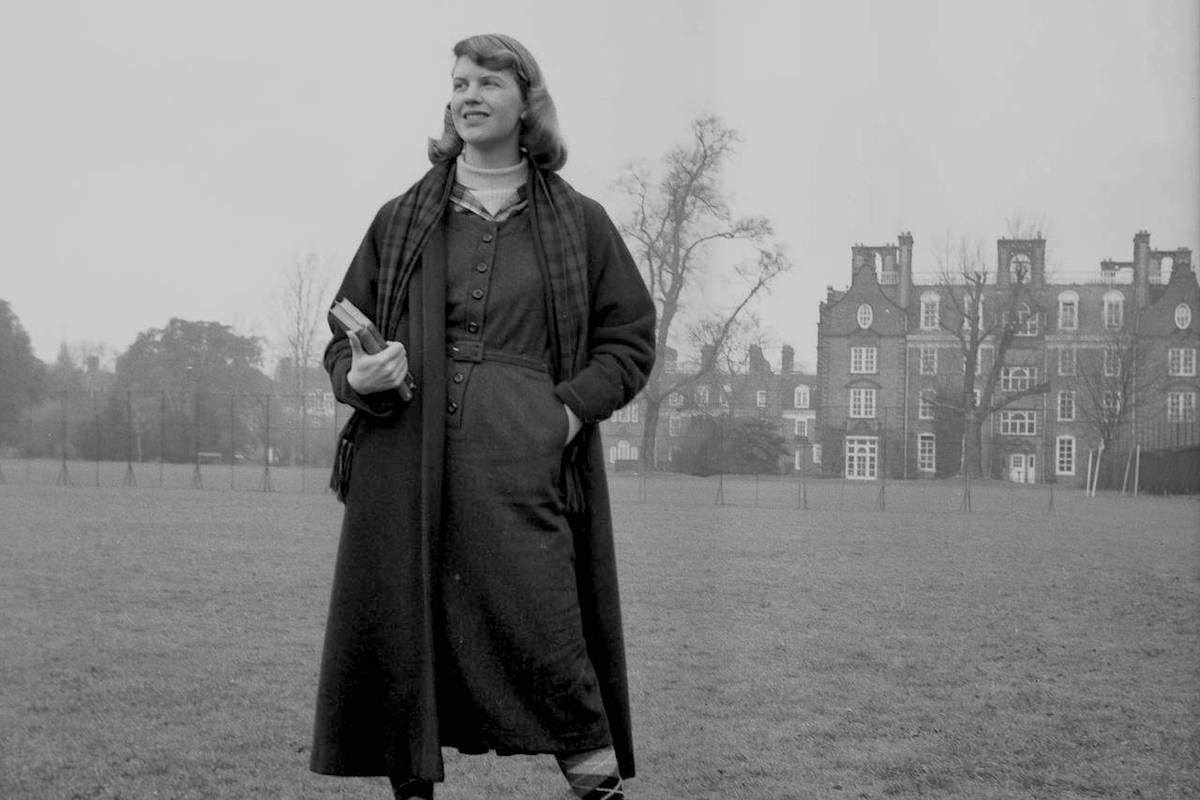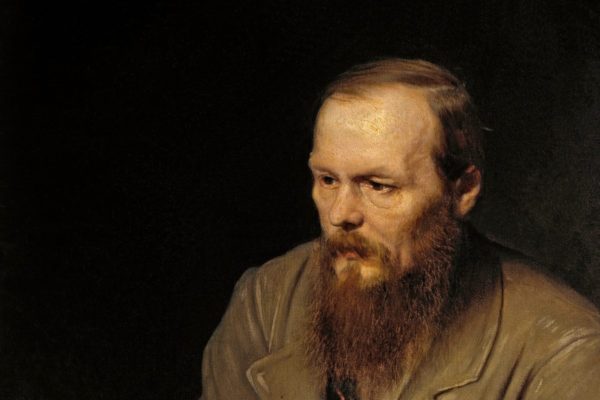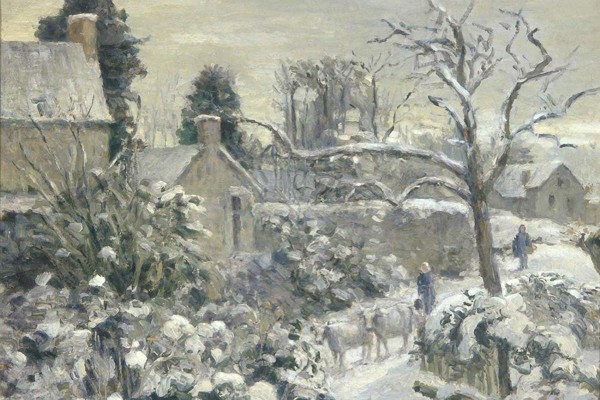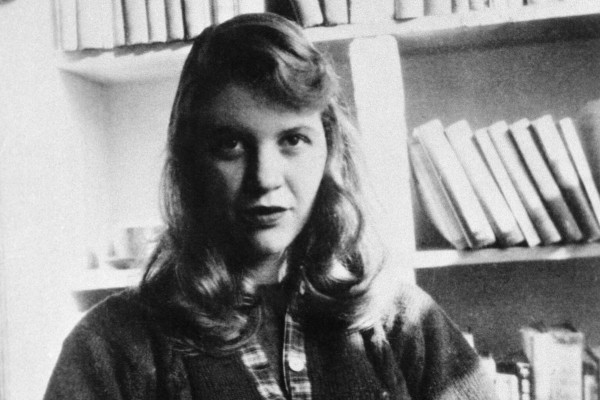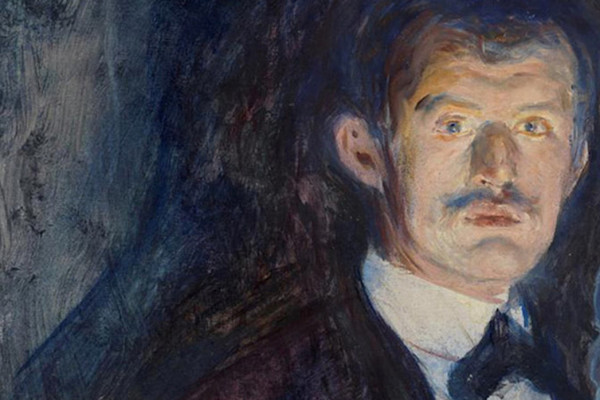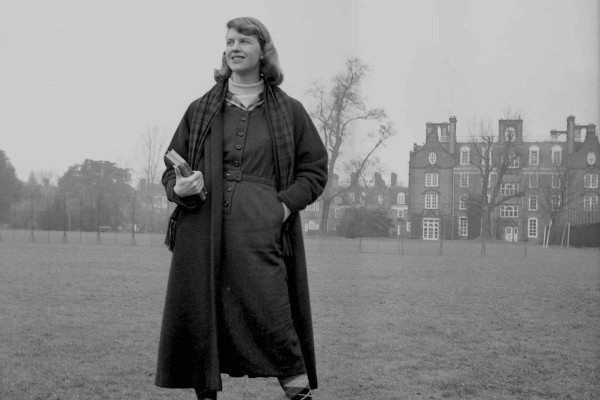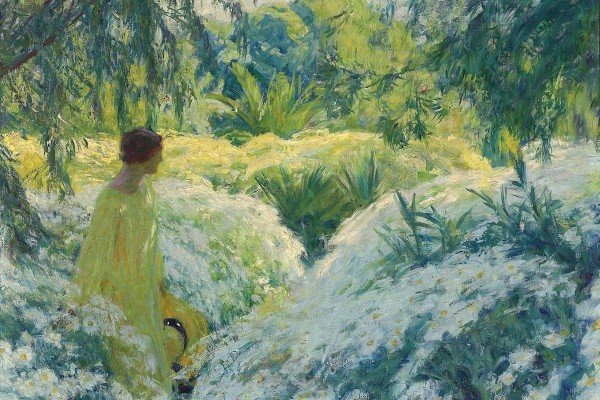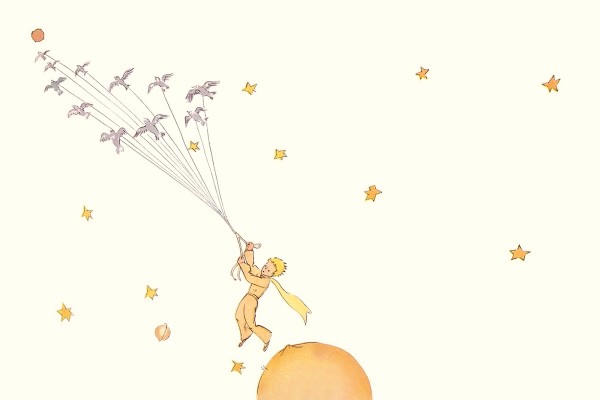In February of 1956, Sylvia Plath was in England attending Newnham College at Cambridge University on a Fulbright fellowship. The Winter was cold and the snow fell, white and indifferent, on the campus grounds, blanketing the wrought iron fences, the rooftops, and the bare-limbed trees in glittering white veils.
In The Unabridged Journals of Sylvia Plath, Plath described the Winter in a variety of passages, capturing the silvery ambiance of the season:
“The blue-silver of the cold moon, shining brilliantly on the drifts of fresh-fallen snow, with the myriad sparkles.” … “And he walked out, a dark lone figure against the pale white blur of snow in the dead quiet crescent court.” … “I came walking along the outer path, through the crust of snow, breaking, hearing the dry crunch and then crossing the snow field.”
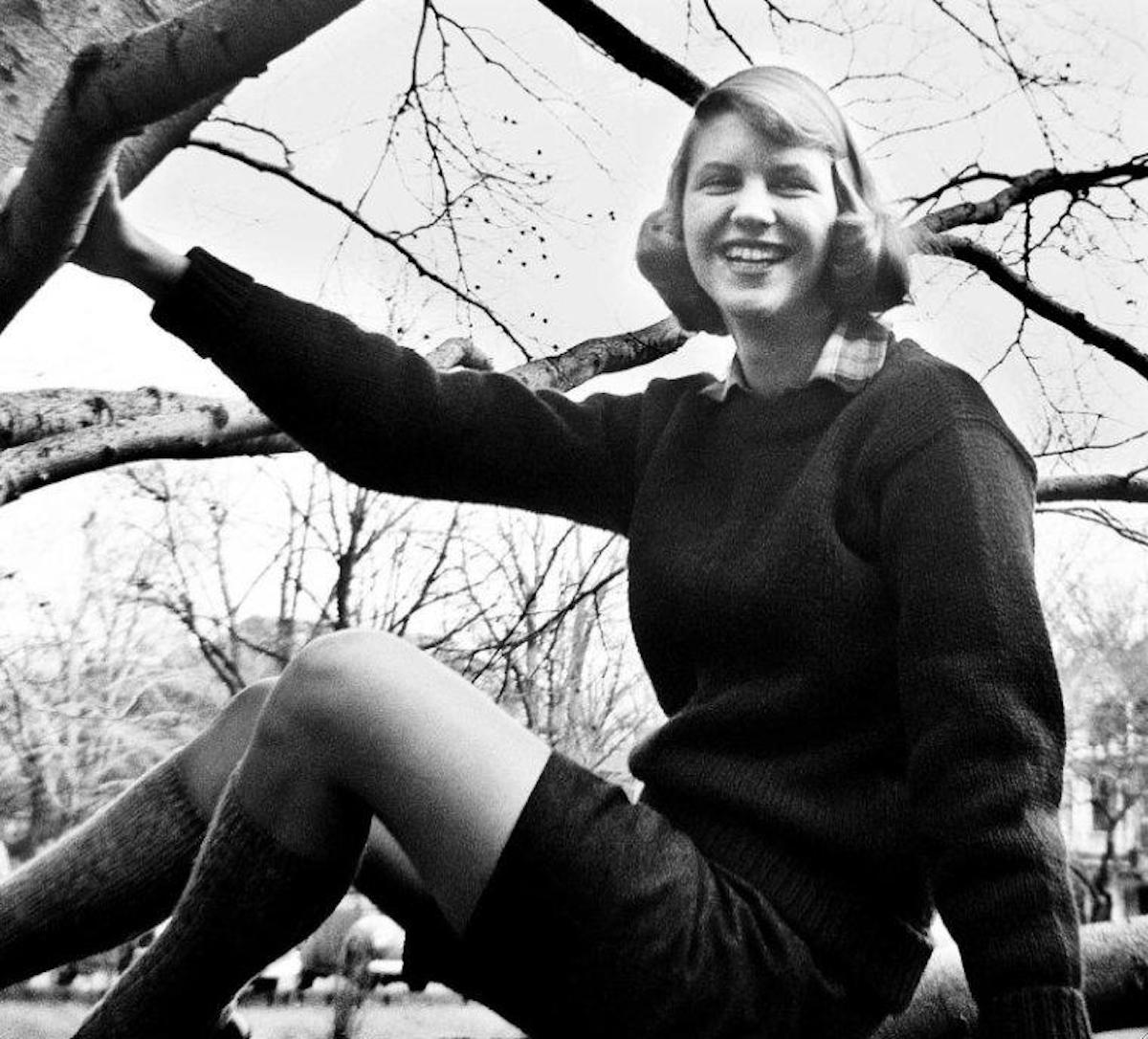
Whilst attending Newnham College, Plath sent, and received, multiple letters from her Mother, Aurelia Frances Plath. In one of these letters from her mother, Plath found some invaluable advice. She writes in a journal entry, “Mother wrote today with a good letter of maxims; skeptical as always at first, I read what struck home.” She then proceeds to copy down the bits of her mother’s letter which most affected her. One of those bits was as follows:
“If you compare yourself to others, you may become vain or bitter – for always there will be greater and lesser persons than yourself.” – Plath’s mother in a letter to her daughter.
In this passage, Plath’s mother warns her daughter of the pitfalls of comparison. Not only is comparison the thief of joy, as Theodore Roosevelt once wrote, it is also a dangerous slope which may lead to bitterness or vanity, depending upon whom one is comparing oneself to.
To a young woman who was still perhaps uncertain of who she was, this was a great piece of advice, and one which is still relevant today. How difficult it is to simply be as we are, and to refrain from comparing ourselves to those worse than us or better, or even comparing ourselves to who we were in the past or who we wish to be in the future.
Above all else, comparison is damaging because it requires us to look outside of ourselves in order to define who we are. As is quite obvious, it is unlikely that you will discover who you are by comparing yourself to others. In fact, the only thing you may learn from such a practice is how you measure up against another, and even this differs widely, as most things do, based on perception.
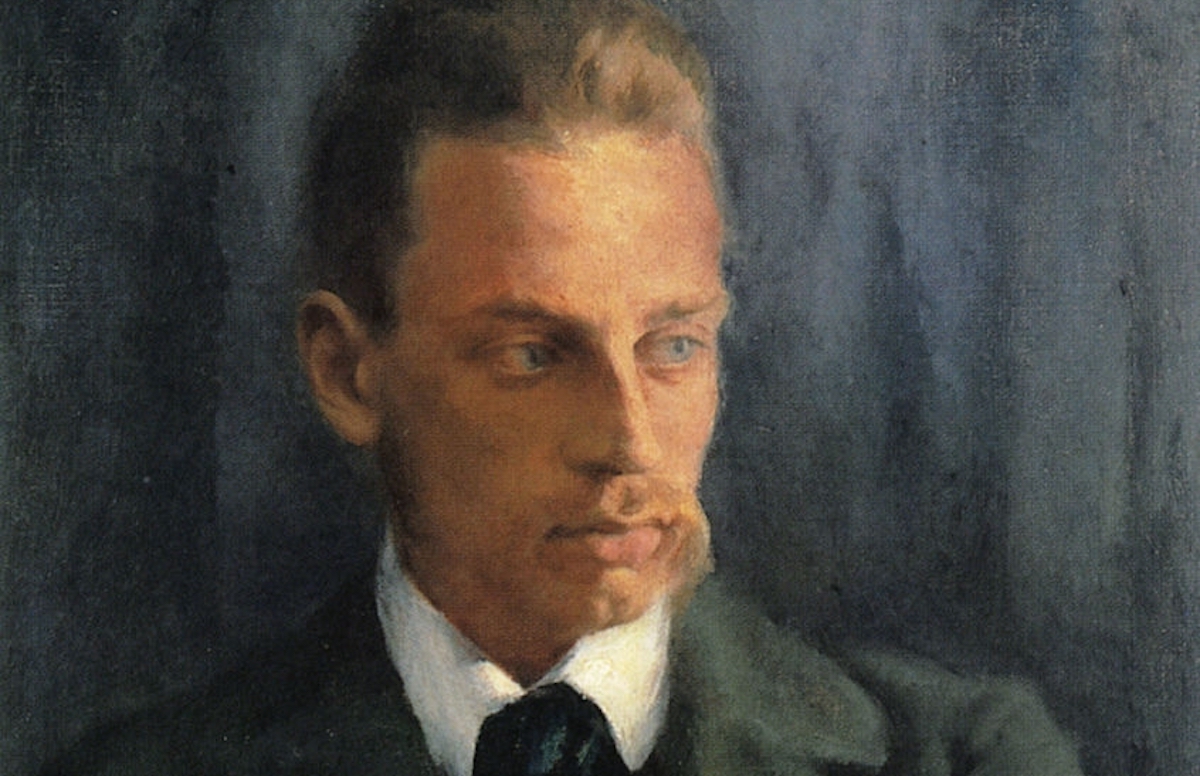
Painting of Rainer Maria Rilke by Helmuth Westhoff.
What does it matter, in the end, who we are in relation to someone else? We should be more concerned with who we are in relation to who we wish to be. This advice was echoed in Rainer Maria Rilke’s Letters To A Young Poet, in which he wrote:
“You ask whether your verses are any good. You ask me. You have asked others before this. You send them to magazines. You compare them with other poems, and you are upset when certain editors reject your work. Now (since you have said you want my advice) I beg you to stop doing that sort of thing. You are looking outside, and that is what you should most avoid right now. No one can advise or help you – no one. There is only one thing you should do. Go into yourself.” – Rainer Maria Rilke, Letters To A Young Poet
This advice to “go into yourself” is useful, for it is only when we are completely alone, without the adornments and distractions of company, that we can see who we are clearly.
Although one cannot say whether the young Sylvia Plath knew who she was (is anyone truly certain of who they are, much less what they are? And is it even possible to define a self which is constantly changing and evolving in relation to ones experiences?), in her journal entries she often wrote about a wish to be someone else. This wish, however, was not manifested as a desire to be one specific person, but rather, as a desire to be an entire variety of people. She wanted to be everyone – to experience things as they did, to see with their eyes, and to feel their pains and joys.
“I love people. Everybody. I love them, I think, as a stamp collector loves his collection. Every story, every incident, every bit of conversation is raw material for me. My love’s not impersonal yet not wholly subjective either. I would like to be everyone, a cripple, a dying man, a whore, and then come back to write about my thoughts, my emotions, as that person. But I am not omniscient. I have to live my life, and it is the only one I’ll ever have. And you cannot regard your own life with objective curiosity all the time…” – Sylvia Plath, The Unabridged Journals of Sylvia Plath
In this passage she admits to her desire, not to be someone else, but to be everyone, and to experience all the various shades and flavors of existence which come from this. Perhaps this longing to live other existences stemmed from a dissatisfaction with her own life, which, in her own words, she felt was horribly limited.
“I can never read all the books I want; I can never be all the people I want and live all the lives I want. I can never train myself in all the skills I want. And why do I want? I want to live and feel all the shades, tones and variations of mental and physical experience possible in my life. And I am horribly limited.” – Sylvia Plath, The Unabridged Journals of Sylvia Plath
Was she limited? Only when we compare our life to the lives others do we see how it may be limited. Perhaps this is why Plath’s mother wrote her about the dangers of comparison.
It would seem the only limits Plath faced were those which confront us all. Namely, those limits which we impose upon ourselves. She desired all the richness and diversity of experience which life has to offer, and yet she felt she would never be able to satisfy this desire in the one simple little life she was given. Her life was too narrow to encompass all that she longed to live. This is a common human feeling – this desire for more life, for the unknown, the new, the un-lived.
Are we greedy for wanting to experience more than the existence we are allotted? We lament that our lives are not diverse enough, not long enough, not exciting enough to satisfy the endless needs of our souls, yet isn’t it up to us to draw out this richness? Is not everyone responsible for their own life? And if we are limited, who may we blame but ourselves?
In order to live well and to draw the richness out of our own lives, we should perhaps refrain from comparing our lives to those around us. Indeed, it is only when we step away from comparison that we may begin to notice the meaning and nuances and the unique beauty of our own lives.
In her letter to her daughter, Plath’s mother continued:
“Be gentle with yourself. You are a child of the universe no less than the trees and the stars; you have a right to be here.” – Aurelia Frances Plath
I will leave you with that.
(Note: if you buy any book(s) using the links above, I will receive a small commission. It will not cost you anything extra, and you will help me to maintain this blog. Thank you.)

